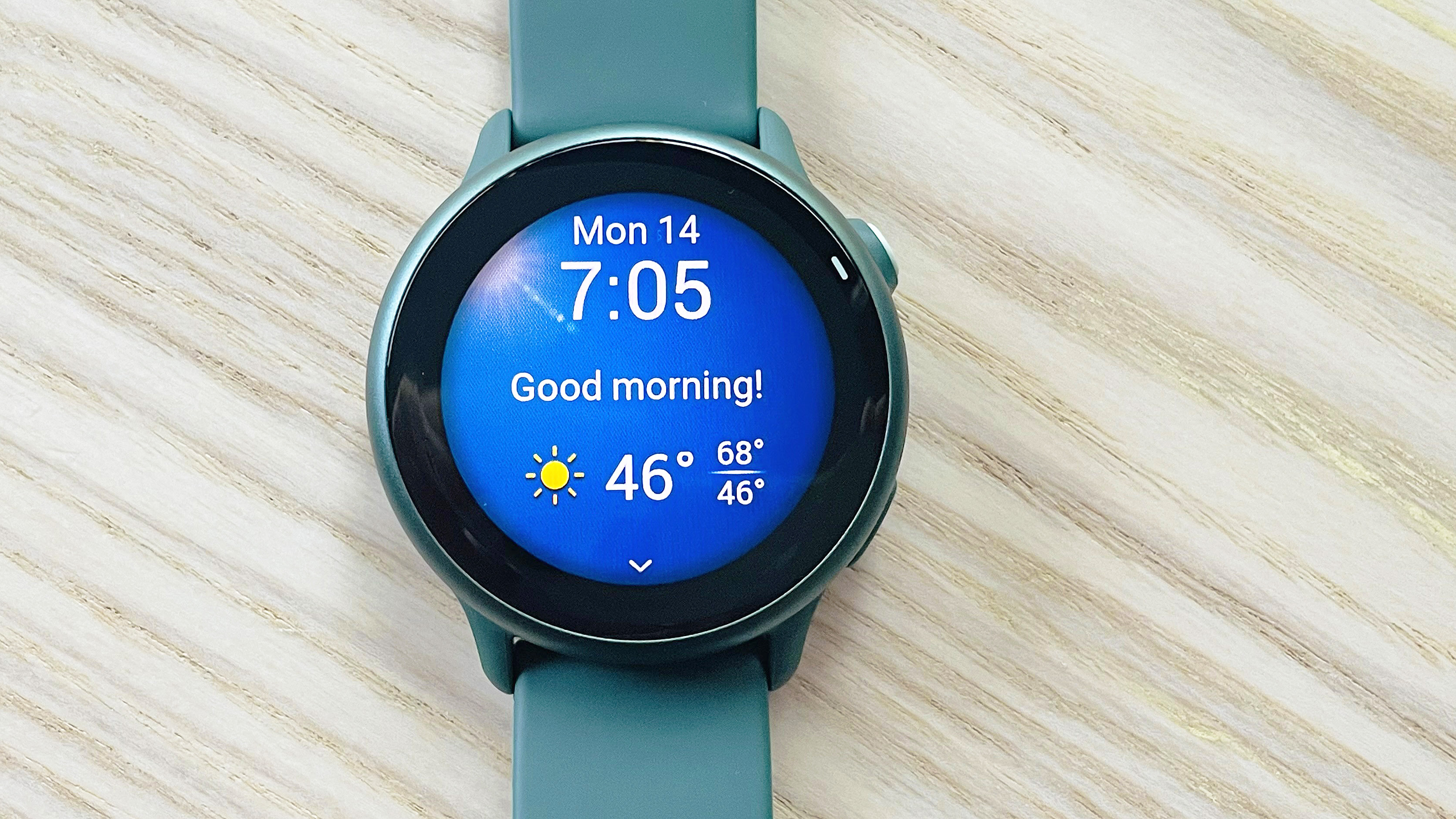Meet Ionic, Fitbit's First Smartwatch and Last Chance to Beat Apple
With a new smartwatch, sweatproof headphones, and a suite of enhanced health- and fitness-tracking features, Fitbit proves it's playing hardball.
The rumors were true. Fitbit is taking on Apple with what the company is calling its very first smartwatch: the $300 Ionic.
Unlike the Fitbit Blaze, the Ionic packs in premium smartwatch features such as GPS, water resistance for swim tracking and, most importantly, an app store with third-party apps.
But it's what Ionic promises to deliver that could transform wearable technology. The watch features a sensor that will track SpO2, or oxygen saturation in your blood, to diagnose sleep apnea. Fitbit is focused on bringing more advanced health features to the Ionic, which could make its smartwatch far more useful than any others on the market.
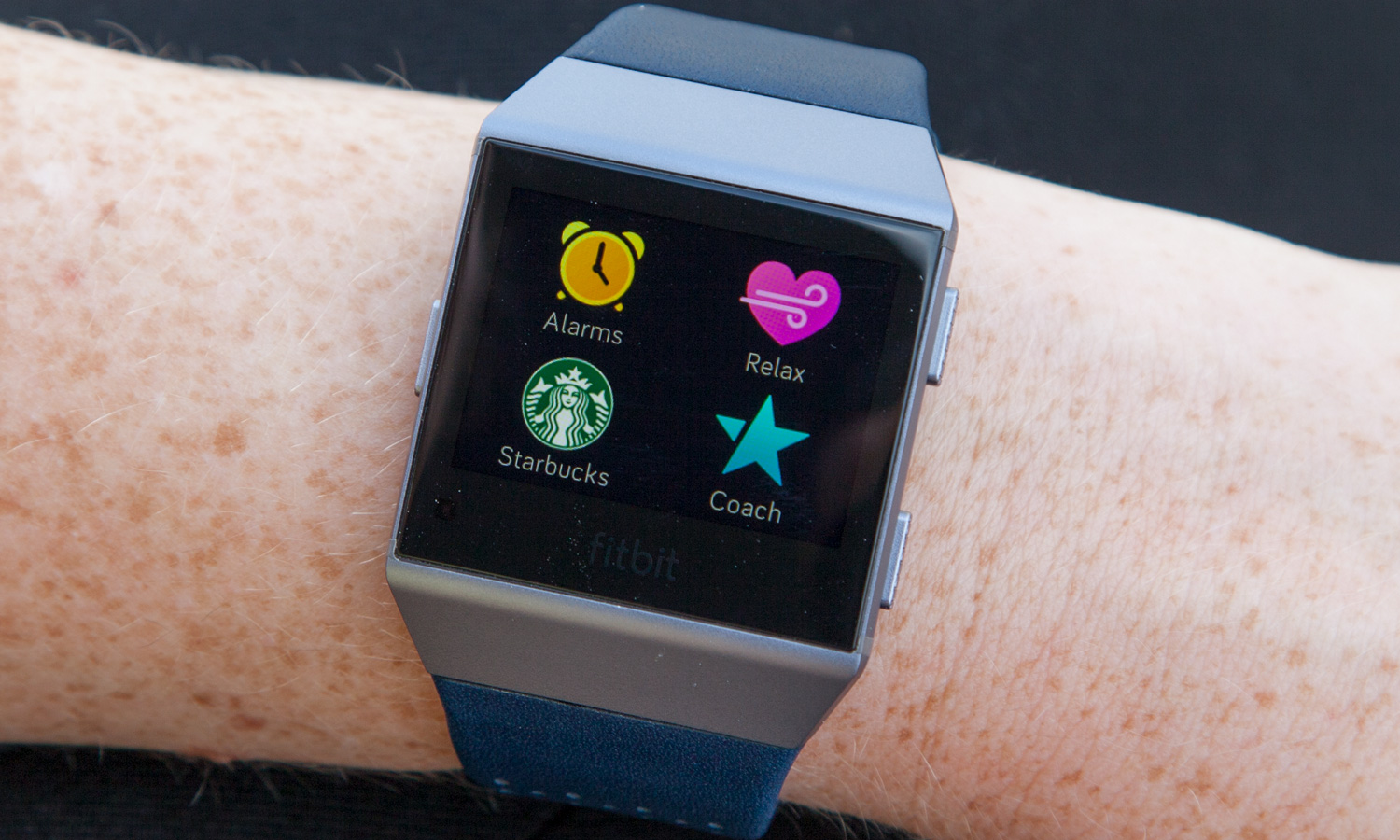
Does Fitbit's new smartwatch have what it take to beat not only the Apple Watch, but also GPS watches from rivals such as Garmin? I went hands-on with the Ionic to find out.
Let's Talk About Looks
The Ionic is bound to be polarizing. Some will love it, as it's clearly the most full-featured device Fitbit has ever made. Some will hate it because of its design: plain, boxy and just too large for many wrists. I fall squarely in the middle, at least after a week of use. I love the Ionic's features and potentially game-changing health apps, but wish Fitbit had put as much thought into the design as it did the software.
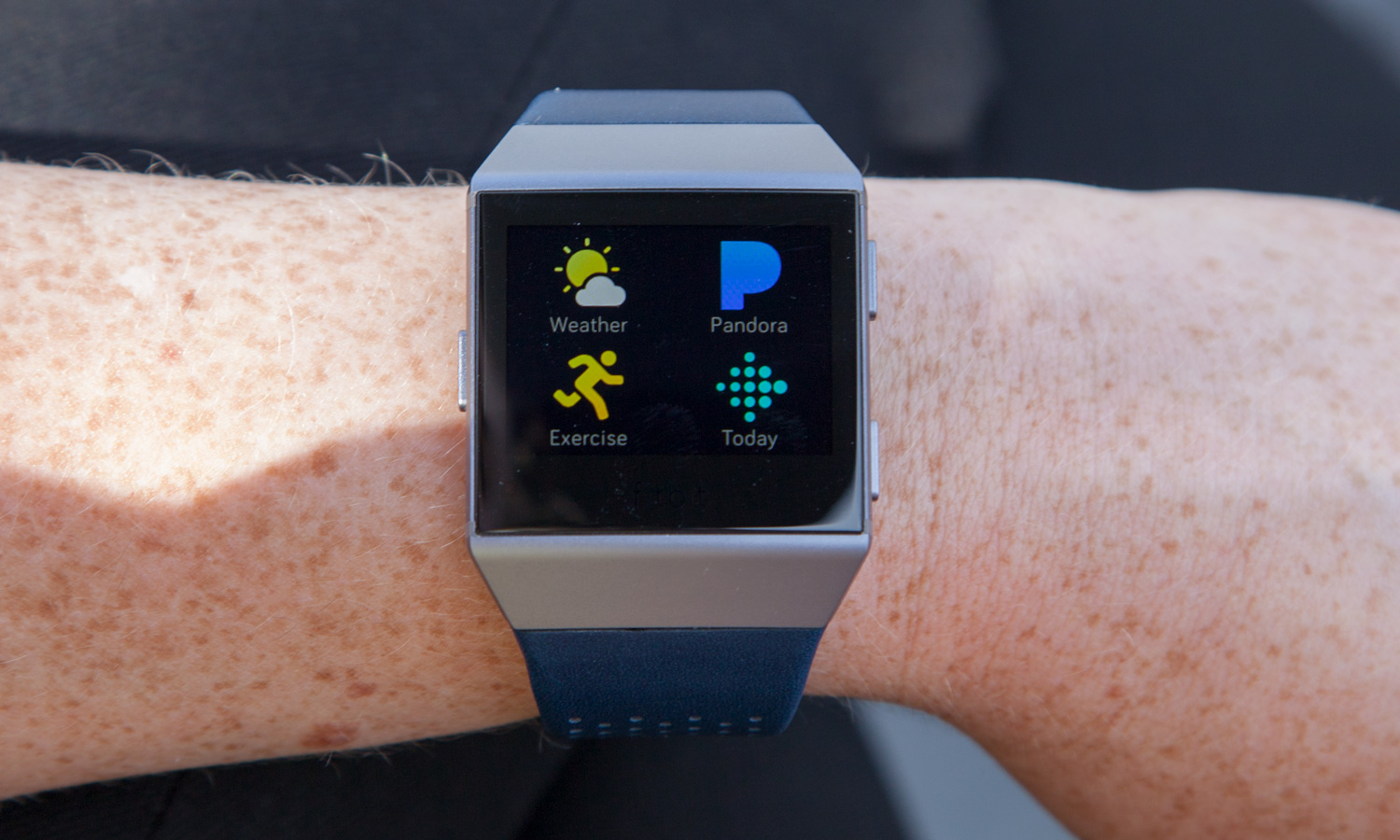
The 38.59mm Ionic looks much bigger than the 38mm Apple Watch, thanks to its aluminum case that juts out from the top and bottom of the display. The watch's interchangeable bands easily snap into the case, but those extra millimeters add considerable bulk to what would otherwise be a fairly slim device.
The color LCD (348 x 250 resolution), touch-screen display looks bright and clear, even on a 4-mile run in direct sunlight. But the screen is fairly small considering the available real estate, which the thick bezels and Fitbit's logo on the bottom cut into.
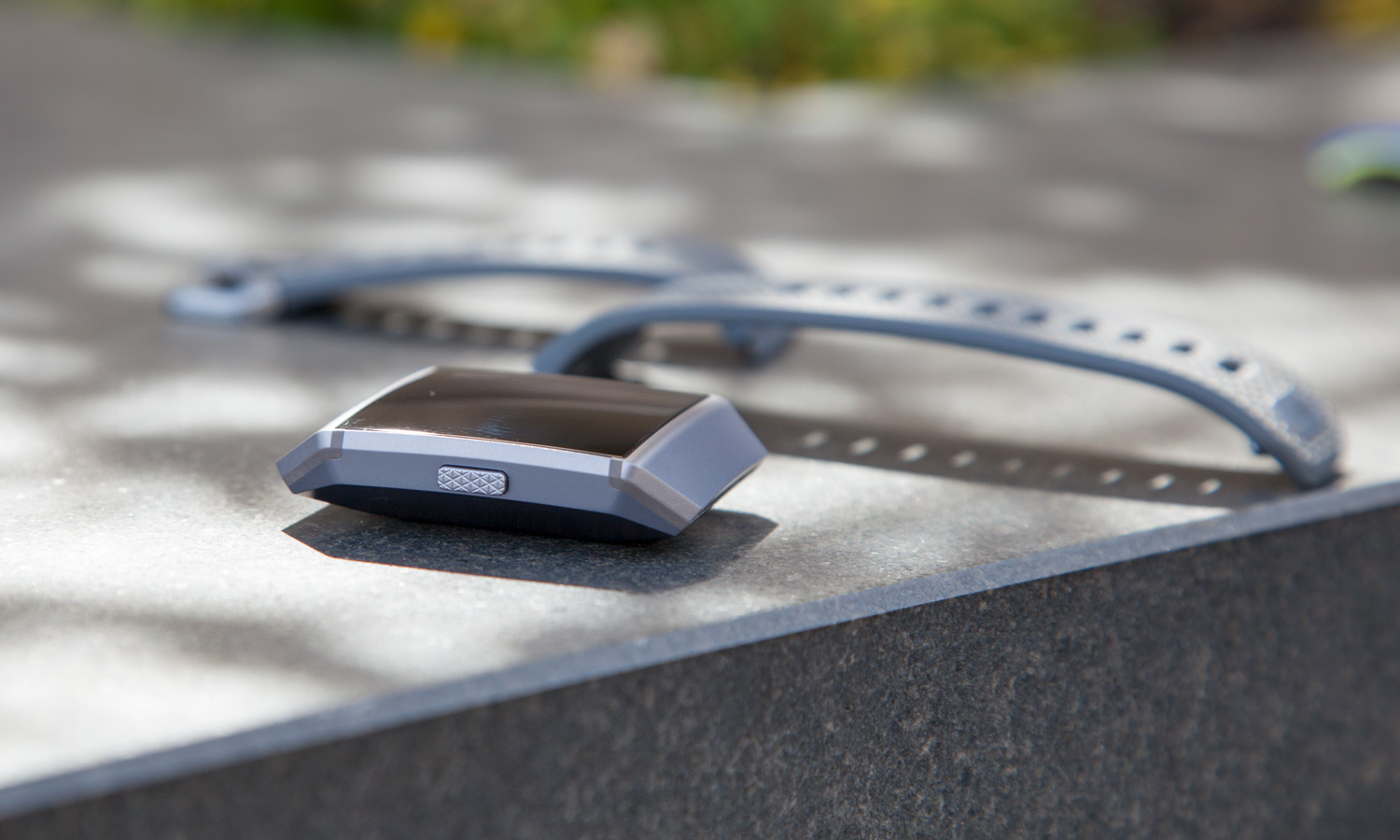
At least the Ionic is a much better-looking device than its predecessor, the Blaze. That device consisted of a black plastic display inside of an aluminum frame that attached to the Blaze's interchangeable bands. The incredibly awkward design required you to pop the display out of the frame and into a USB-connected case to charge up.
MORE: Smartwatch Buying Guide - Everything You Need to Know
A Full-Featured Fitbit
What the Ionic lacks in the looks department, it makes up for everywhere else. The watch has all the fitness- and sleep-tracking features you've come to expect from Fitbit, as well as upgrades such as GPS, which kicks on automatically after you run for 2 minutes. The watch also sports smart notifications; any alert that comes to your phone will appear on your watch face, too.
The deep sleep insights that Fitbit introduced with the Alta HR are in the Ionic, too, so you won't have to take the watch off at night. Most smartwatches have pitiful battery life, but Fitbit promises four days on a single charge. That will vary depending on GPS and music playback, which could reduce battery life to about 10 hours.
Pay as You Go
Fitbit is going beyond fitness to make the Ionic a more well-rounded watch. To compete with Apple Watch, Fitbit acquired payment startup Coin last year and introduced an NFC chip with Ionic. That means you can load credit or debit cards to the Fitbit app and then use the Ionic to pay at any store with an NFC reader, no phone required.
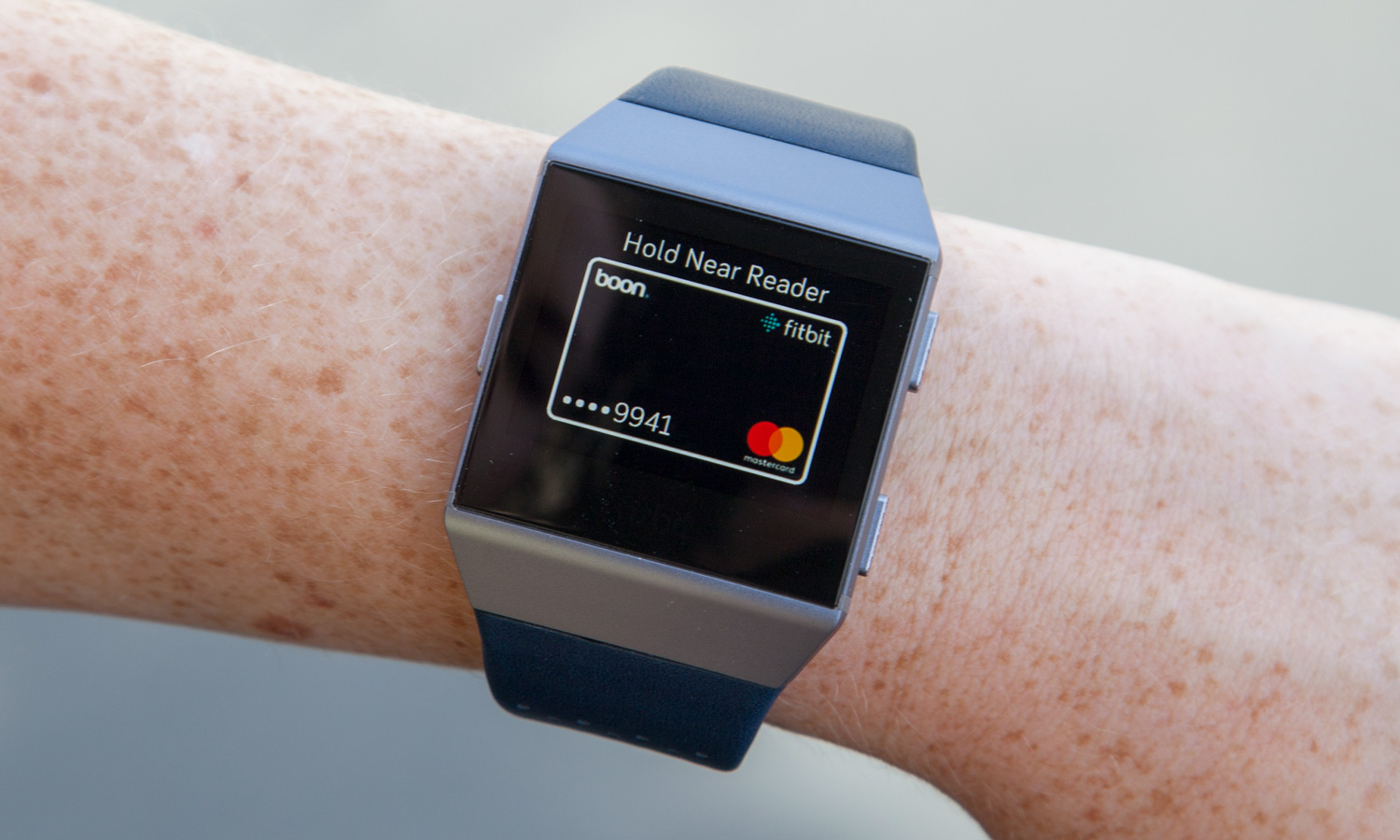
I tried this out in a Fitbit demo store, and it was just as quick and seamless as using Apple Pay on an Apple Watch. You simply press and hold the left side button and wait until the watch vibrates and your card appears on screen. Then, you press the watch face to the payment terminal.
You'll immediately receive an alert from the Fitbit app when your transaction is approved. Fitbit won't support every card issuer at launch, but the company has nailed down partnerships with Bank of America, Mastercard and Visa, and plans to get banks on board to support more cards.
Fitbit Embraces Apps
Fitbit is opening an SDK for third-party developers in September, but has a few major players ready to go at launch, including Pandora, Starbucks and Strava. Starbucks will take advantage of Ionic's NFC chip so you can pay for your pumpkin spice latte using just your watch.
The software is an extension of the platform-agnostic experience that smartwatch-maker Pebble was known for; Pebble was acquired by Fitbit last year. Fitbit is opening its Ionic SDK to literally anyone; you don't have to be a registered developer with Apple or Google to build an app for the Ionic. All apps will run natively on the watch and have access to all of its sensors. You'll even be able to create and share an app privately (for a small group or a team) without going through a review process.
While Fitbit says it's encouraging fitness app developers to build versions for Ionic, developers won't be limited to just fitness apps. Thomas Sarlandie, Fitbit's software engineering director, said Fitbit envisions all types of apps on Ionic, from transportation to smart home solutions, and much more.
The Ionic also has 2.5GB of local music storage space, which translates to more than 300 songs. Fitbit partnered with Pandora so you can save playlists offline, though this integration requires a paid Pandora Plus or Premium account. Ionic owners can also store MP3s on the watch.
More Fitness Features
Fitbit hasn't forgotten its roots. The company built an Ionic app called Fitbit Coach, a paid personal training service that is an upgraded version of the company's Fitstar workout videos. On the Blaze, Fitstar's training videos are ultrabasic; think stick figures showing you how to do jumping jacks. Plus, there are only three of them.
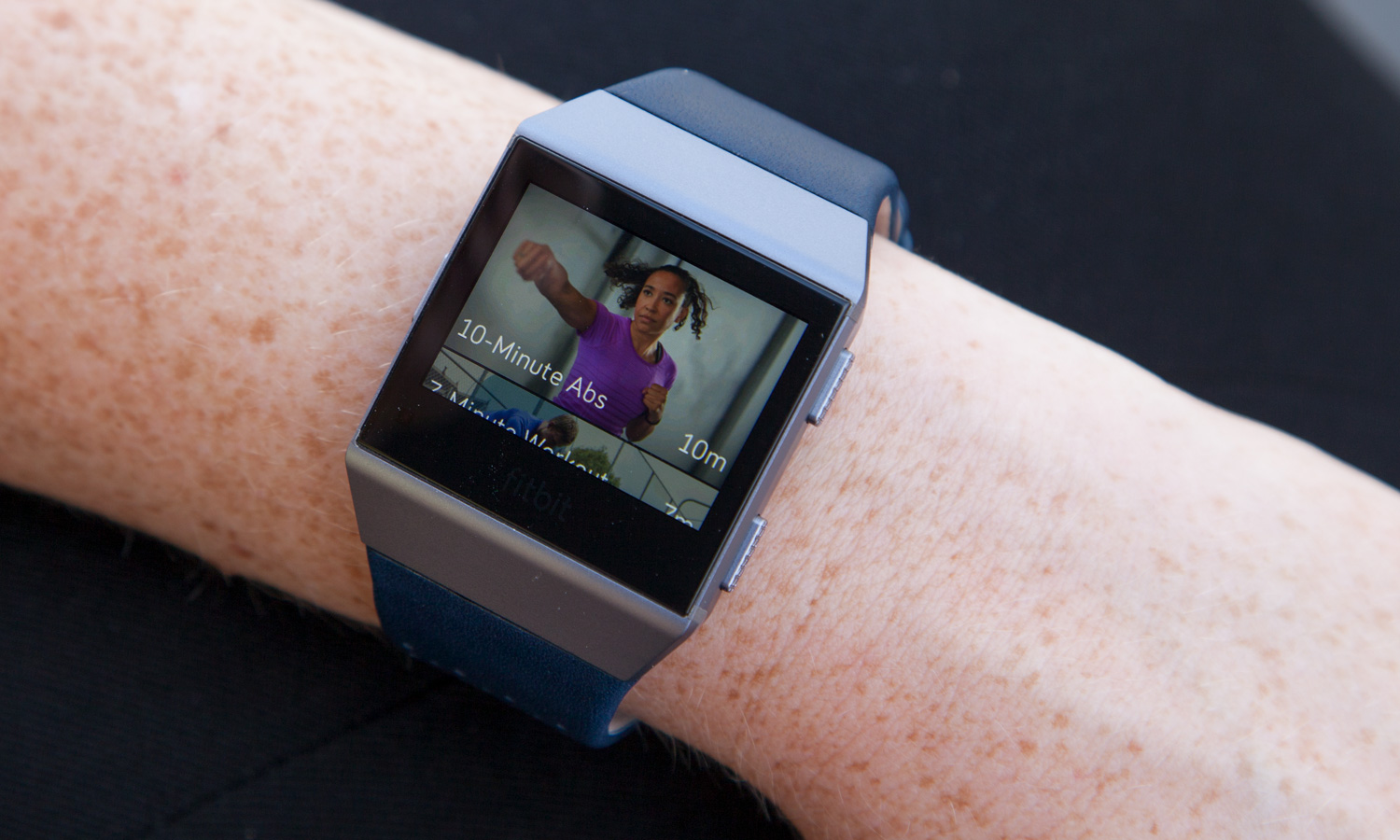
Fitbit Coach puts full-fledged workout videos right on the Ionic watch face and will offer personalized recommendations for exercises to do next based on your most recent workouts. An audio coaching feature is coming to the Fitbit Coach service this fall, with an Ionic-specific experience in 2018.
In winter, Fitbit will introduce guided health programs themed around health and fitness goals like cutting added sugar from your diet or going from the couch to a 45-minute run in six weeks.
Other New Fitbit Devices
Fitbit is already known for its fitness trackers and smart scales, but the company is adding a new product to its lineup: Fitbit Flyer, a $130 pair of sweatproof headphones designed to complement the Ionic.
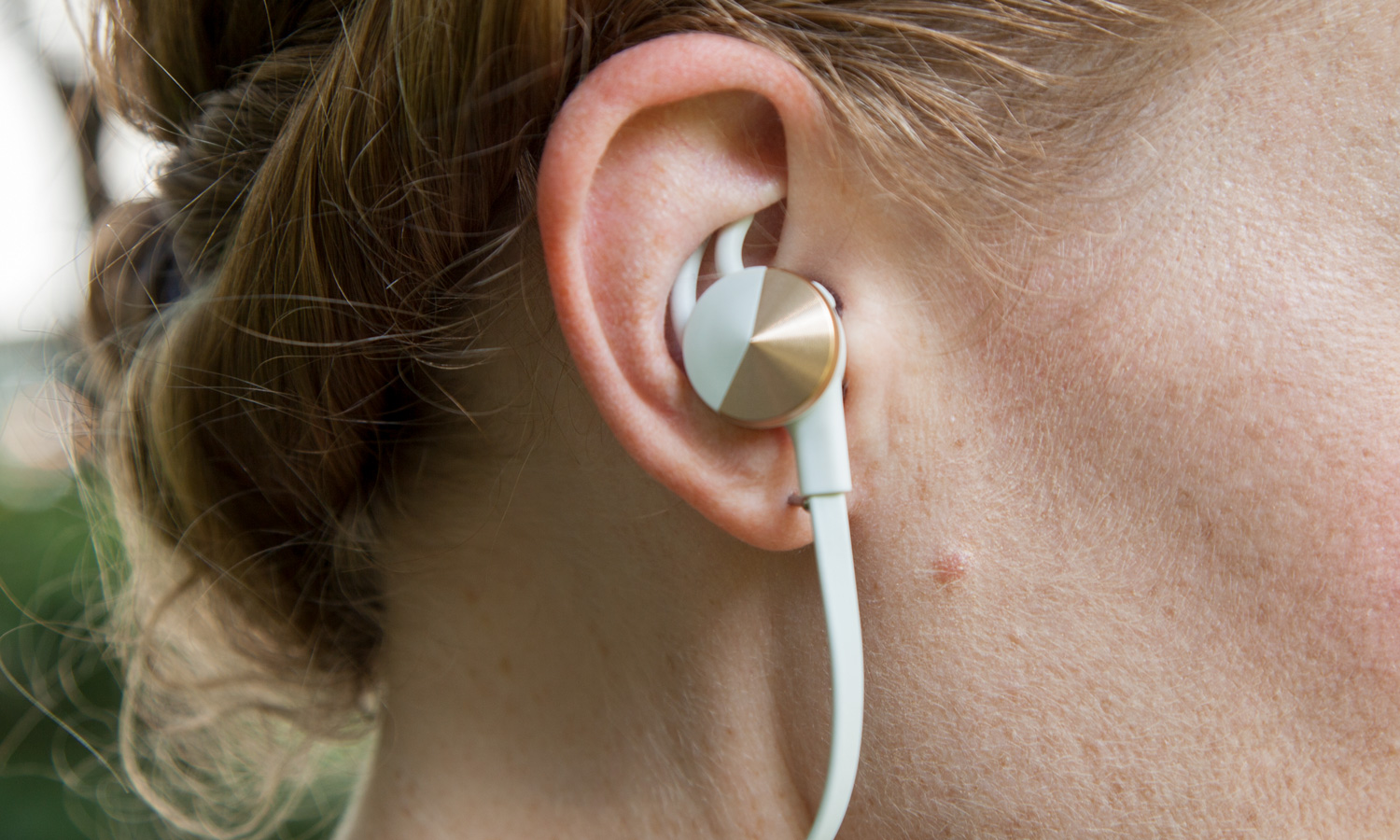
The headphones pair seamlessly with the smartwatch, so you can leave your phone at home when you head to the gym or hit the pavement.
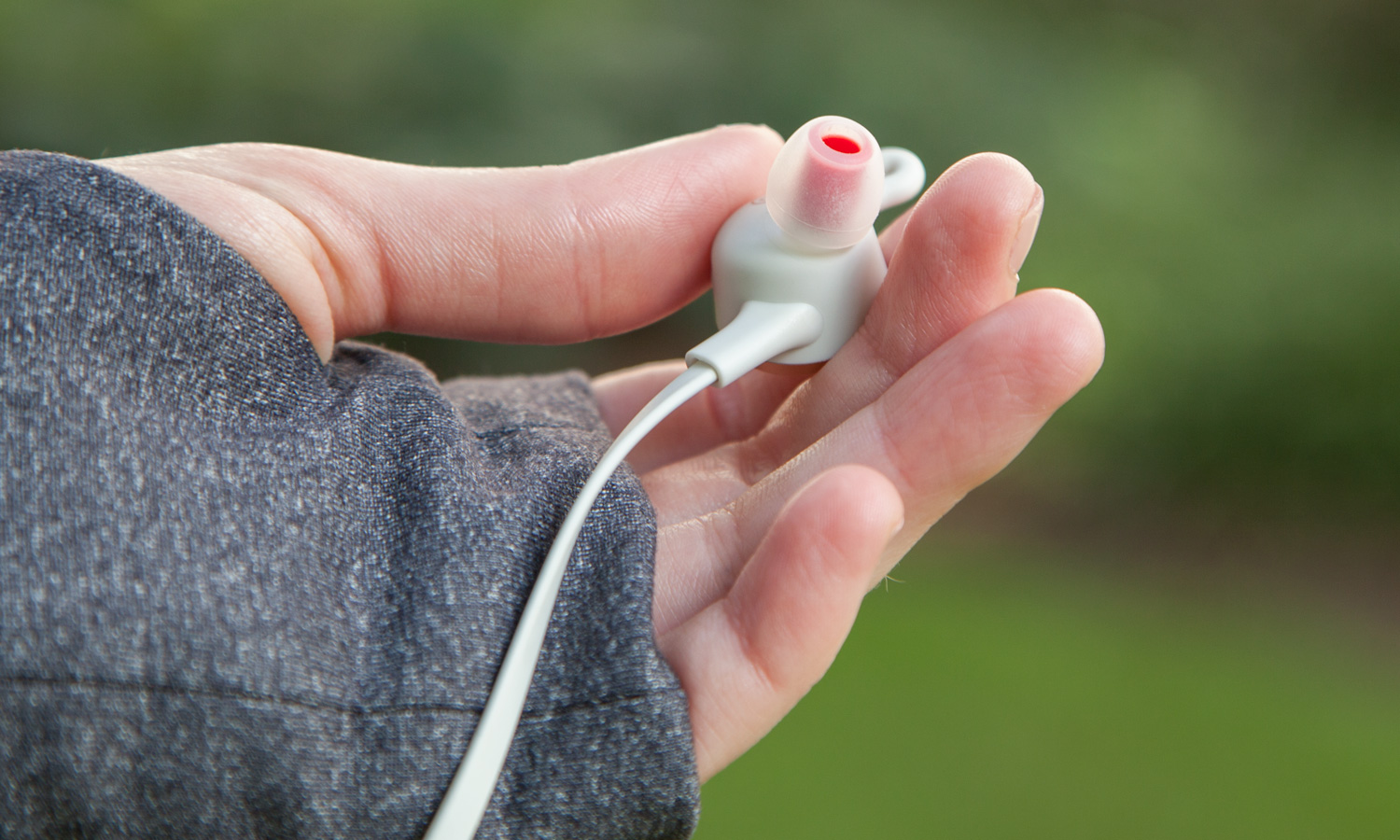
In my experience, setting up the two devices was incredibly easy: Just power on the Flyer headphones, then open Bluetooth settings on the Ionic. Flyer is already an option to pair, because the two devices recognize each other automatically. The headphones will go on sale in October alongside the Ionic.
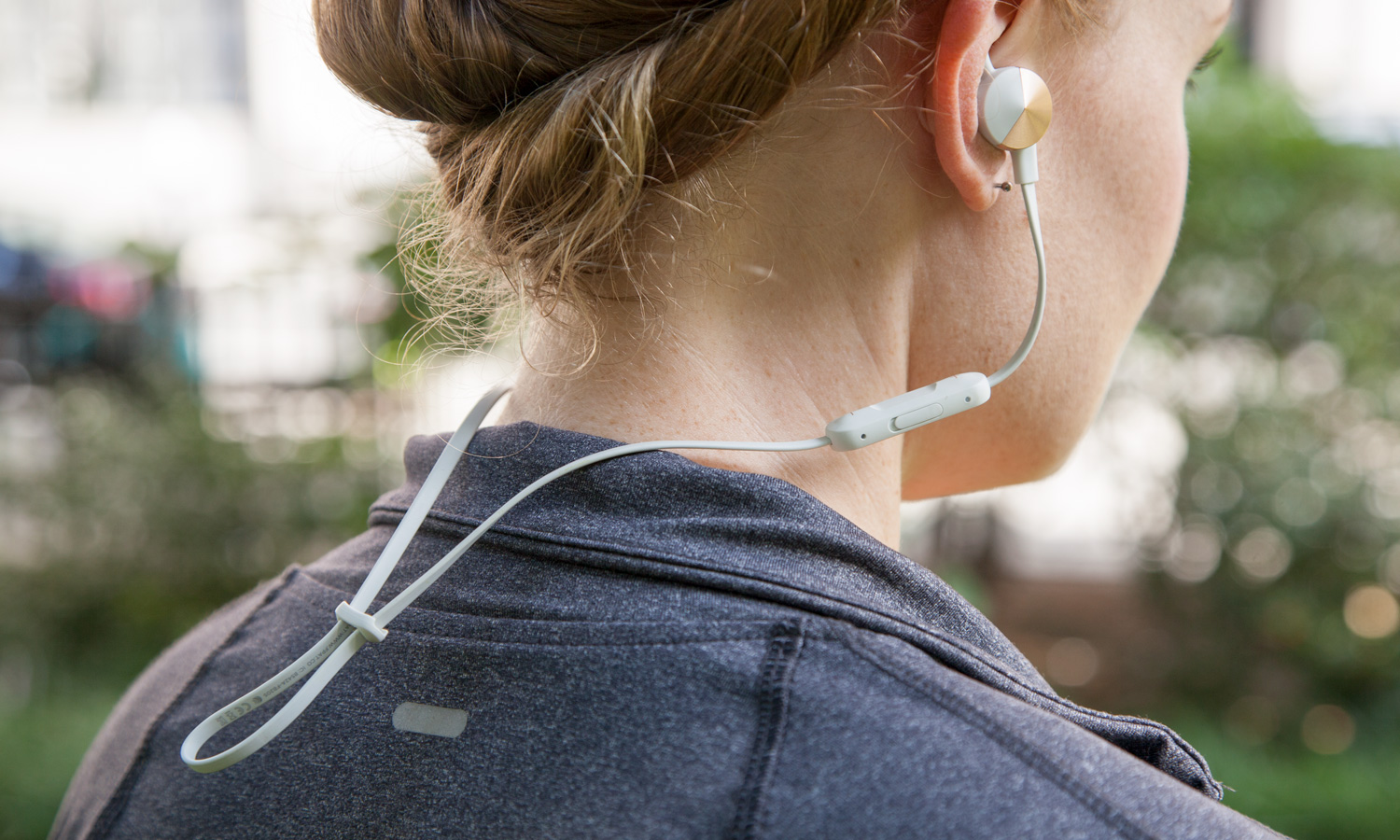
Fitbit is also getting ready to ship an upgraded version of its Wi-Fi scale. The $130 Aria 2, also scheduled for an October release, has new algorithms for more-accurate results, plus a bigger and brighter display than the last-gen model has.
Outlook: A Promising Start
Fitbit Ionic is now available to preorder on Fitbit.com and will be available at major retailers in October. After spending close to a week with the Ionic, I'm impressed by what it offers and also what it promises. While the design is bulky, I plan to live with the watch for a few more weeks, so stay tuned for my full review.
Credit: Shaun Lucas/Tom's Guide
Sign up to get the BEST of Tom's Guide direct to your inbox.
Get instant access to breaking news, the hottest reviews, great deals and helpful tips.
Caitlin is a Senior editor for Gizmodo. She has also worked on Tom's Guide, Macworld, PCWorld and the Las Vegas Review-Journal. When she's not testing out the latest devices, you can find her running around the streets of Los Angeles, putting in morning miles or searching for the best tacos.
-
jdkresovich Why? I have no familiarity with fitbit devices. It would be helpful to learn why this watch is a disappointment to a Pebble user. The bulk?Reply -
chrishartcom The Blaze with a changeable frame was awesome! And there were other chargers that allowed you to charge without popping the piece out of the frame.Reply
